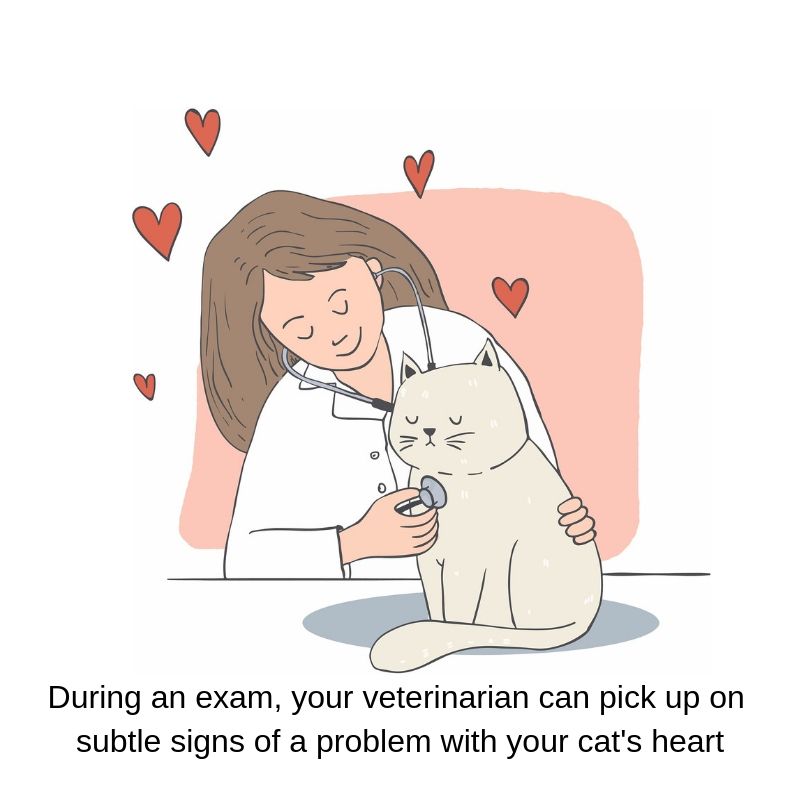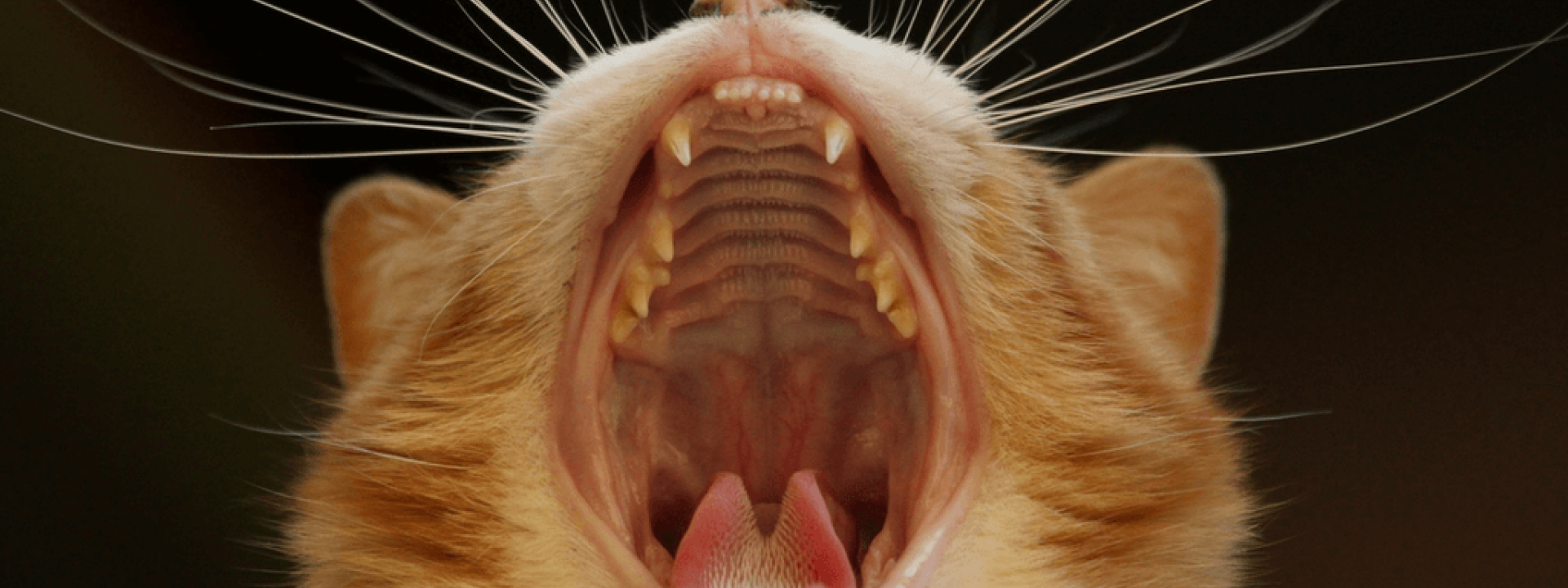Does your cat have a big heart? No, we’re not talking about her loving personality. An enlarged heart could point to a cardiac condition known as hypertrophic cardiomyopathy—and it can mean big problems for your feline friend’s health.
What is Hypertrophic Cardiomyopathy?
Cardiomyopathy is a big word that simply means “disease of the heart muscle.” While there are many different types of heart disease, hypertrophic cardiomyopathy, or HCM, is by far the most commonly diagnosed cardiac problem in cats.
HCM occurs when the muscle of the left ventricle—which is responsible for pumping oxygenated blood to the rest of the body—becomes abnormally enlarged or thickened, reducing the heart’s ability to function properly.
In some cats, this thickening occurs as the result of an underlying condition, such as hypertension (high blood pressure) or hyperthyroidism (overactive thyroid). Certain breeds, like Maine Coons and Ragdolls, may also have a genetic predisposition to the disease; however, most cases of HCM do not have a known cause.
If left untreated, changes in the heart’s structure over time can lead to serious complications, including blood clots, congestive heart failure, and sudden death. While early detection and disease management cannot eliminate these risks, they can provide your cat the best chance of living a normal, healthy life.
What are the Signs?
Because HCM can take several weeks, months, or years to progress and most cats will not display any clinical signs until the disease has reached an advanced stage, regular veterinary exams are critical for catching this condition early.
By listening to your cat’s heart and lungs with a stethoscope, your veterinarian can pick up on even the most subtle signs of a problem, including:
- Murmurs or other abnormal heart sounds
- Irregular breathing sounds
- An elevated heart rate
- A weak pulse

As the disease progresses, your cat may develop more noticeable signs of heart disease, including:
- Lethargy or weakness
- Loss of appetite
- Difficulty breathing
- Rapid breathing during periods of rest
- Exercise intolerance
- Chronic coughing
- Fainting or collapse
- Sudden hind-leg paralysis
If you notice any of these signs, it is important to seek veterinary care immediately.
How is HCM Diagnosed?
If your veterinarian observes a heart murmur or any other abnormalities during the physical exam, she will likely recommend diagnostic tests to first rule out any underlying causes, and then to determine a course of treatment. These may include:
- Blood testing: Lab tests are the first step in assessing your cat’s general health and ruling out any underlying causes of HCM, like hyperthyroidism.
- Radiographs: Chest X-rays allow your veterinarian to assess the general condition of your cat’s heart and lungs.
- Echocardiogram: Performed by a veterinary cardiologist, an ultrasound of the heart provides an opportunity to examine the heart’s chambers, valves, muscles, and vessels while it is pumping.
- Blood pressure testing: Like the one performed in your doctor’s office, this test measures your cat’s blood pressure when the heart contracts (systolic) and relaxes (diastolic).
- Electrocardiogram (EKG): This test measures the electrical activity of your cat’s heart, which can be used to diagnose murmurs and other conditions.
How is it Treated?
Changes in the heart muscle are irreversible—and the longer they are left untreated, the more severe they become. While there is no cure for HCM, it can be managed with early detection and proper veterinary care. If HCM is determined to be secondary to a treatable condition such as hyperthyroidism, the condition may resolve when the underlying condition is treated.
In addition to regular monitoring, your veterinarian may prescribe medications to help manage your cat’s HCM and reduce the risk of further damage and complications.
While the risks and varied prognoses of HCM can be frightening—it can worsen quickly or progress slowly over many years—it’s important to remember it’s not a death sentence. In fact, with your dedicated care and a veterinarian’s guidance, your cat can enjoy a normal life for many years.
Have we listened to your cat’s heart lately? If you suspect your cat may have a heart condition, or it’s just time for her annual exam, please contact us or schedule an appointment.

